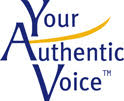Ten thousand hours. That’s what I’ve heard it takes to master anything. Ten thousand hours. I believe it.
I remember walking into a National Speakers Association meeting 12 years ago. I heard this was the place to learn how to speak and get paid for it. Sounded good. A branding expert told me to combine my experience with living and speaking from my authentic voice, with my performance background, and become a professional speaker. I hadn’t thought of that before so decided to look into it. Why not? How hard could that be?
Famous last words.
I had no idea what it would entail to learn how to deliver a message from the stage so someone would really listen, let alone pay me. Yes, I had been a communications professional for 20 years, had been on stage for 30 years, was a writer for hire, and on and on. That said, being a professional speaker was a whole new ballgame.
We do not know what we do not know.
Today, I look back at that time and I’m so grateful that branding expert recommended I take this route. It lead me to today — speaking, coaching and consulting. I couldn’t do this if I hadn’t walked that path, especially during such a challenging time.
I entered the field, and almost immediately, the country started sliding into the Great Recession. The meetings industry recessed right along with it. My topic was “soft.” It had more to do with the “people skills” side of the ledger. At that time, clients were more willing to pay for someone who could help them get directly into the black.
But, that didn’t stop me. I worked hard. I did a lot of speaking. Even with all my “natural” talents, and showing up for all the available training I could, it was tough. Sometimes my audiences received my presentations with great enthusiasm. Other times, not so much. I learned that mastery is not something we come by easily. It takes time, attention, and a willingness to be a continual learner. It also takes riding the waves of success and failure, and never giving up.
What is speaking mastery?
“Mastery” is defined as a comprehensive knowledge or skill in a subject or accomplishment. Hmmm. Given that definition, I don’t know if that is even possible. Mastery is a bit like a mirage. Whenever you get close to it, it seems to move a little further away. Why? Because it’s an illusion. Not that you can’t get good. Real good. But mastery?
I know people who’ve been speakers for decades who don’t consider themselves masters. I don’t consider myself a master. I can, however, share a few things from my journey I hope you find helpful on yours.
1. Find your authentic voice and remain true to it. As you grow and master your craft, remember to stay in alignment with what is really important to you. Be true to yourself.
2. Take praise with a grain of salt. It’s lovely when you receive kind words. It’s fantastic to feel appreciated, and know that your audience has benefited from your presentation. That’s why you’re there! Praise, however, can be addicting. People may tell you you’re wonderful, and no doubt you are in many ways, but watch that doesn’t lull you into a state of complacency or into resting on your laurels. Be confident in your skills, yes. Know that what you can share is valuable, yes. Beyond that, I’ve seen so many people slide down a slippery slope into egomania. It’s not pretty, and sooner or later, that person will have challenges. People who are truly masters are some of the most humble people I know because they know there’s always more to learn.
3. Stay current and relevant. The times are always changing, and now at what seems like light speed. While you don’t have to recreate the wheel every week, keep your antenna up for important changes and trends. Be curious. Ask yourself, what do I need to add to my toolbox to best serve my audience? If you can’t or don’t want to do it, find someone who does.
4. Be willing to go deep. Masters don’t skim the surface. They dive into the murky waters and emerge with wisdom they can pass on to others. Be courageous enough to delve into those deeper waters.
5. Be of service. I used to tell my son, Lucas, “use your powers for good, Luke!” Use your powers for good. In addition to serving your own life, identify how you can use your growing mastery in the service of others.
Striving for mastery enables you to impact more lives, do more good, and enjoy yourself all the more! I’d love to support you to master your speaking skills. You can reach me at Andrea@AndreaBeaulieu.com.


Leave A Comment